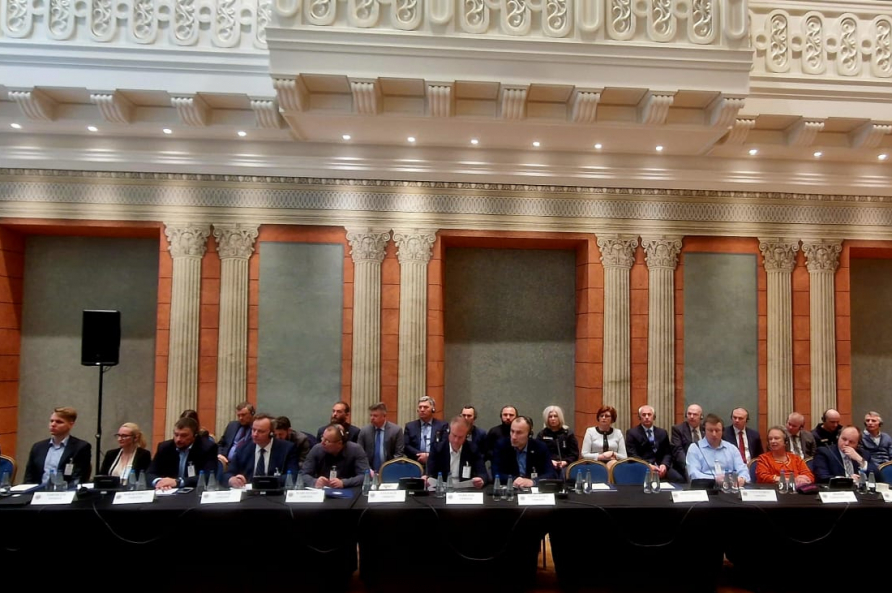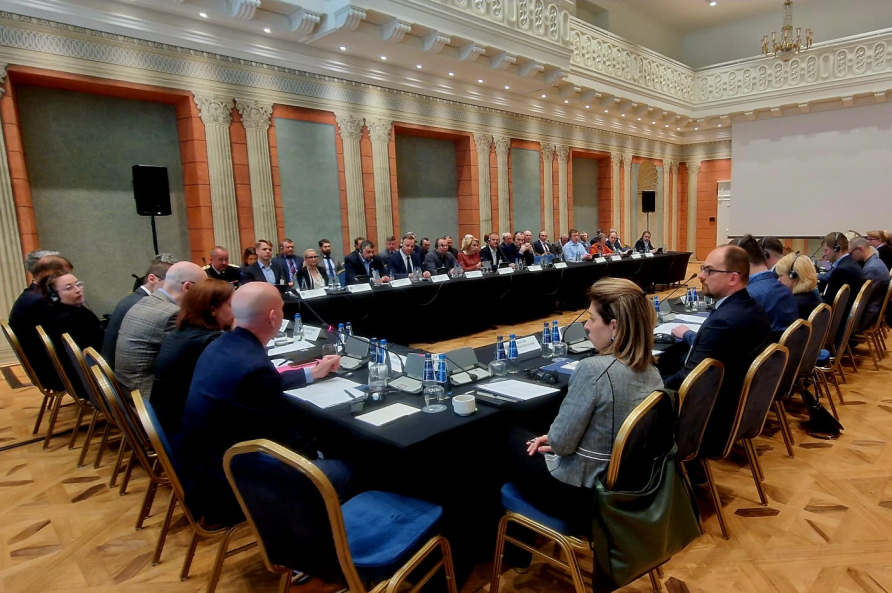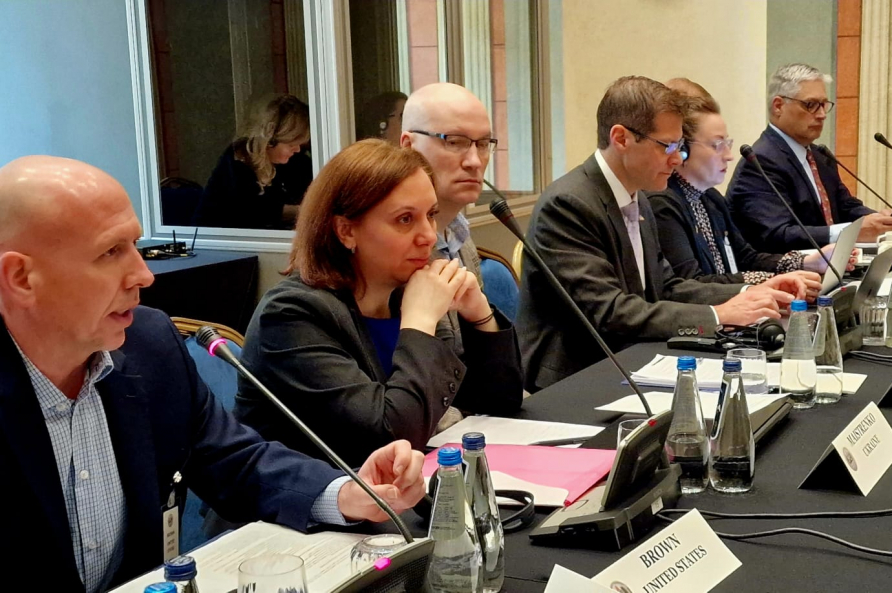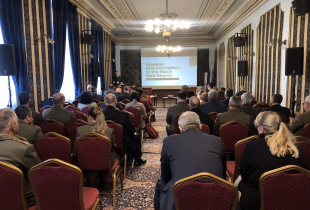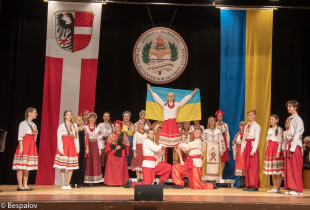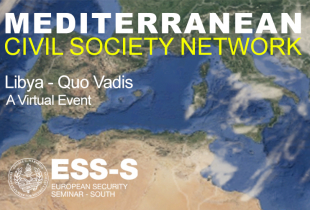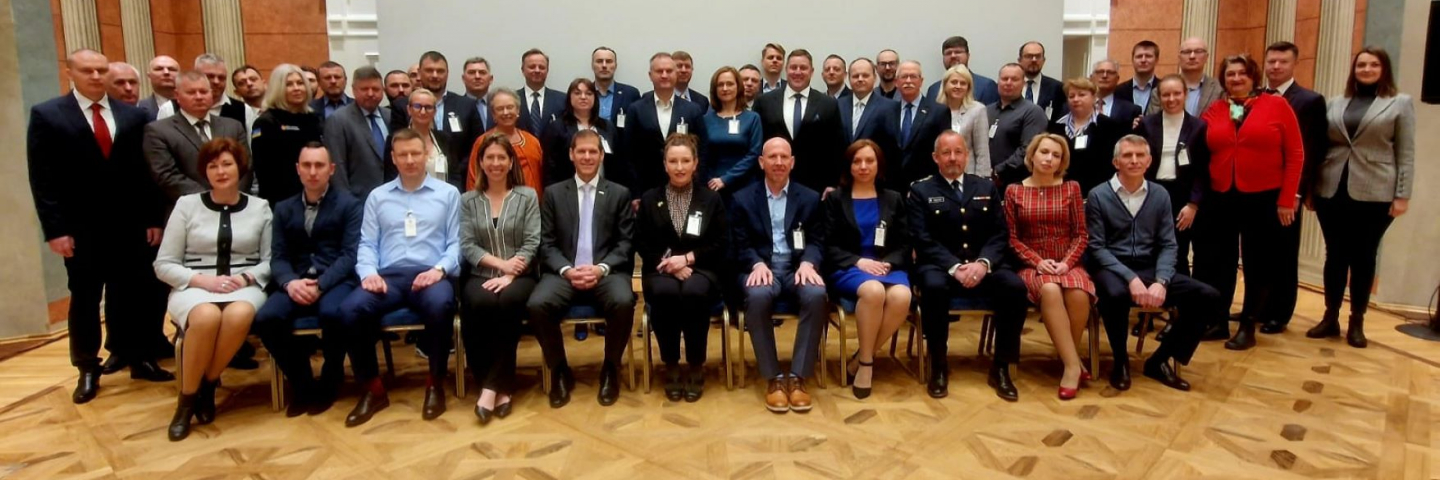
Ukraine Shores Up National Resiliency With Legislation
KRAKOW, Poland - The George C. Marshall European Center for Security Studies, in partnership with the Defense Security Cooperation University’s Institute for Security Governance, held its second Ukraine resiliency workshop consisting of a three-day workshop that brought together 38 participants working in the government sector – including 18 Ukrainians - aimed at enhancing the resiliency of Ukraine through legislation, Apr. 25-27, 2023.
The first workshop, held in December, assessed and discussed the national resilience challenges Ukraine faces. This second workshop narrowed their focus on legislative resiliency.
“We’re building on that momentum (from December),” said retired Col. Todd Brown, the Ministry of Defense Advisor with the Embassy of the United States in Ukraine. “We’re focused on legislative items or topic that deals with resiliency and how the Ukrainian government actually manages and administers programs under their resilience framework. It’s a critically important topic.”
The ISG team leading the workshop opted to use the NATO definition and outline to detail resilience. NATO’s Framework for Resilience, adopted at the Warsaw Summit in July 2016, was developed in response to a range of security challenges, including Russia's annexation of Crimea, instability in the Middle East and North Africa, and the rise of cyber threats. Using that as a basis, each member nation developed their own strategies and regulations. Ukraine, although not yet a member of NATO, has since adopted the common phrases and language used at the security organization for their own legislation, to be better situated when Ukraine does become a member.
Kenneth Deal, visiting from the U.S. State Department, reiterated the point that it was up to the Ukrainians where the workshop would lead.
“The end state product that we hope is a Ukrainian solution to a Ukrainian problem,” Deal said. “This is not the United States saying, ‘here’s a solution’ because our solution is uniquely American. Your solution will be uniquely Ukrainian.”
To that end, on the first day of the work shop, representatives from Romania, Estonia, Latvia and Norway gave an overview of what resiliency legislation looked like, what worked and what didn’t in their respective countries.
It isn’t just Ukraine that is looking over their existing resiliency programs, said Professor Oistein Knudsen, National Civil Defense Commissioner, Chief of Civil Defense Norway and visiting professor at the Marshall Center.
“I think we all are looking into how we can improve, and sharing experiences is a crucial element of that,” he said. “Our countries are different, our systems are different, but the fundamental legal foundations are so important. Just the fact that we are able to sit down and discuss how we coordinate, how we respond and the legislative foundations for civil defense is vital.”
The war in Ukraine is a unique chance to see in real time how policies and legislation, created in peacetime, holds up in a war time situation. Nations are watching and learning, Knudsen said, so they can take these lessons back to their own countries.
“They’re running a country, they’re in a war and they’re taking time to come back here and discuss, debate and share their experiences,” he said. “It’s invaluable.”
Later in the workshop, a Ukrainian representative summed up their legislative needs by explaining, “It’s quite paradoxical – we have a number of legislatures that mentions resiliency but we don’t have the framework that would bring it all together.”
Pointing to one of Poland’s legislation that defines crisis management and gives objectives, they said, “We need unified definitions and to enshrine it in the law. We need to introduce the risk-based managements approaches and related planning because the government acts cannot cover all of the needs.”
This workshop is just the beginning to further developing and growing Ukraine’s legislation. The United States has clearly expressed it is determination to help Ukraine repair, restore and defend its critical energy and water infrastructure, meet its winter preparedness needs, and support Ukraine’s civilian resilience. These workshops are a prime example of that support.
“We view our support to Ukraine as a frame work for international cooperation and we see the workshop as a good opportunity to begin steps toward implementing the recent assessment findings and addressing lessons learned,” said Sandra O’Hern, Regional Program Lead for ISG. “It’s the experts in each and every one of your functional areas that is what is going to help influence and shape the legal frameworks.”
As Col. Matthew Neumeyer, Head of Strategic Studies Department at the Marshall Center, explained in his opening remarks, what the Ukrainians are doing should be lauded.
“I think you have taken on one of the hardest tasks that any group of government private officials could do - in a time of crisis, you have stopped to think, ‘how can my government be better and how can my organization be better to help my people and help my government?’ From my perspective, that’s amazing.”
